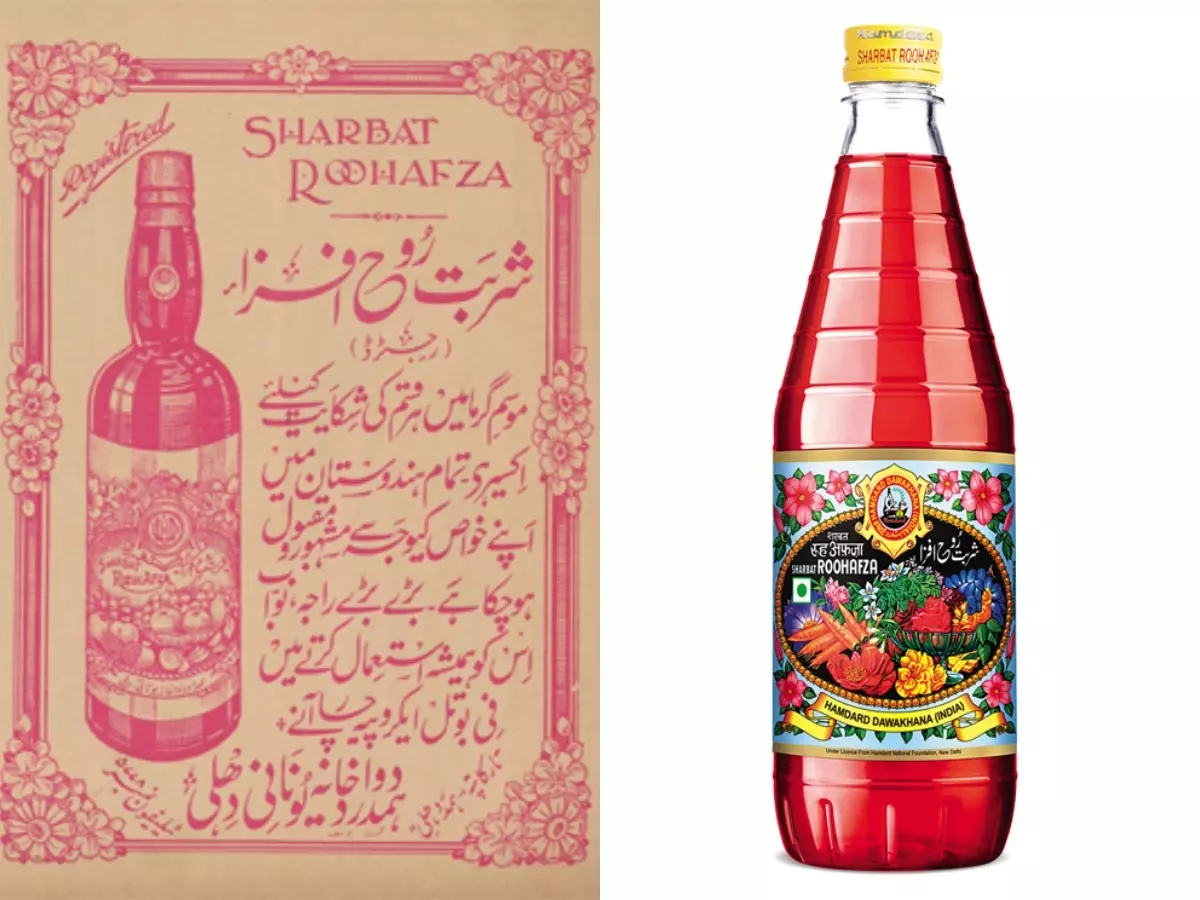Sharbat Rooh Afza: A Timeless Origin Story, From Unani Clinic To Iftar Staple
Rooh Afza is a familiar sight during Eid and throughout the summer in the subcontinent. Most Indians have enjoyed this refreshing red-hued rose-flavoured drink during hot summers or used it to make ice golas. But it isnĄ¯t just limited to India; its neighbouring country, Pakistan also has a shared love for this beverage that has withstood the test of time for centuries.

Rooh Afza is a familiar sight during Eid and throughout the summer in the subcontinent. Most Indians have enjoyed this refreshing red-hued rose-flavoured drink during hot summers or used it to make ice golas. But it isn't just limited to India; it's neighbouring country, Pakistan, also has a shared love for this beverage that has withstood the test of time for centuries.
Origin of 'Hamdard'
India and Pakistan share not just a history but also a similar culinary heritage, reflected in their food and drinks.
Rooh Afza is one such shared culinary heritage.
 Hamdard.com
Hamdard.com
Rooh Afza originated in 1907 in undivided India. It began in a small Unani clinic founded in 1906 by Hakim Hafiz Abdul Majeed in Old Delhi. The clinic aimed to make Unani medicine more accessible to people and was aptly named 'Hamdard', meaning 'companion in suffering.'
 Hamdard.com
Hamdard.com
The Ministry of Ayush, India defines Unani as "a comprehensive medical system, which provides preventive, promotive, curative and rehabilitative health care that takes into account the whole personality of an individual rather than taking a reductionist approach towards disease."
Hamdard clinic rapidly gained widespread recognition and evolved into a multifaceted organisation, branching out into various dimensions of operation.
Sharbat Rooh Afza, a shared culinary heritage between India and Pakistan
 Rooh Afza in 1907/ Hamdard.com
Rooh Afza in 1907/ Hamdard.com
Rooh Afza, introduced in 1907, has become synonymous with the brand Hamdard.
In that year, Abdul Majeed crafted "Sharbat Rooh Afza," meaning a 'soul-rejuvenating drink' in Urdu.
This unique concoction, blending fruits, herbs, and floral extracts, notably rosewater and pandan, quickly endeared itself to the Indian palate.
Its enduring popularity over a century is a testament to the deep affection it commands.
Following Majeed's passing, his wife and two sons carried on his legacy. With the partition of the Indian subcontinent in 1947, one son remained in Delhi, while the other migrated to Pakistan.
Establishing factories in both nations, as well as one in East Pakistan (now Bangladesh), they laid the foundation for two independent firms.
Today, although operating autonomously, both businesses offer products that are nearly identical.
For more on news and current affairs from around the world, please visit Indiatimes News.